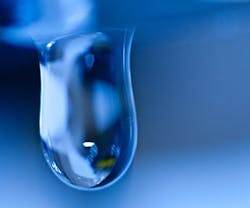Tune-Up Your Water Conservation Program in 2014
Water is one of our most precious resources. For commercial properties, it is also one of the least managed. In many cases, managing water resources means simply reviewing the monthly water bill against the previous month’s bill. Across the country, water rates are soaring – Atlanta is nearly $30 per thousand gallons – and the lack of a conservation program may be draining thousands of dollars from your budget each month. And you probably don’t realize it is happening.
As part of your building’s New Year’s resolution, here are some tips to conserve water in 2014:
- How can you manage what you don’t measure? Like you do with energy, make conserving water a priority by viewing water bills on a monthly basis and comparing to previous months or even years.
- Check for leaks. On a day when no one is in the building, turn off the water and read the meter. After 15 minutes, read it again. If the meter moved, you may have a leak that’s costing you money.
- Incorporate technology that reads the pulse of the water meter in real-time and sends you alerts 24/7 when consumption surpasses a certain benchmark or when a major leak has occurred. This technology collects data and sends it wirelessly to a website portal where managers and owners can view a property’s water consumption for the entire month, day, or even down to the hour.
- Inspect restroom fixtures on a regular basis. Toilets can account for more than one-third of the water you use inside the building. A faulty flapper in one toilet can cost you 200 gallons per hour! Replace high flow fixtures with low flow. Consider metered valve, self-closing, and infrared sensor fixtures and waterless urinals.
- Manage your cooling tower! Inspect for leaks and malfunctions and install flow meters on the make-up and bleed-off lines. This allows you to verify the volume of water being used versus what is lost due to evaporation, drift, and leaks.
- Tour the entire property on a monthly basis. Look for wet spots and alligatored paving – clues to underground leaks.
- Look for products bearing the EPA WaterSense label for conservation and performance.
- Educate tenants about your conservation efforts and what they can do to conserve water and report leaks.
Water is one of our most precious resources. It is also one of our most wasted. By incorporating some or all of the above tips, not only will you conserve water, but you will save a lot of money in the process.
Scott Kale is vice president of sales at WaterSignal.
